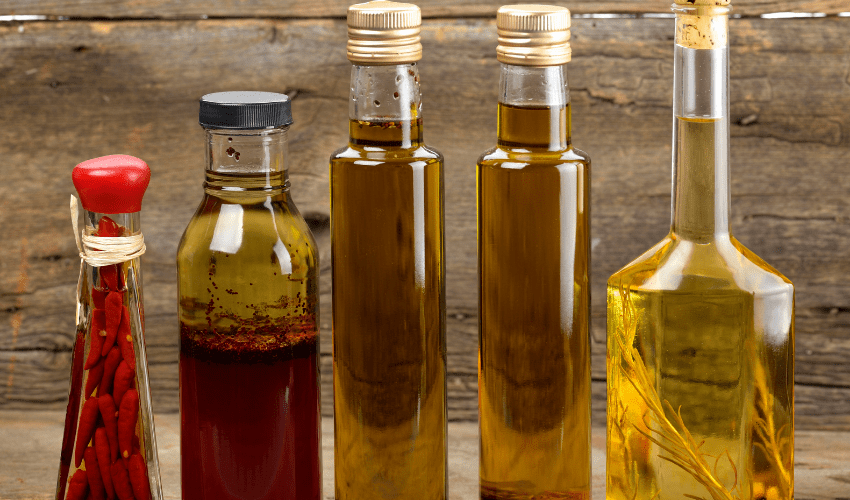It’s time to do your weekly grocery shopping and you find yourself in the cooking oils aisle. There you are, staring at the 47 options and wondering “Which one is the best? Which one is the healthiest?” Just like most products in our country, the cheapest option will probably provide the least health benefits for you. But that doesn’t mean you need to select the most expensive option either! In this post, I’m going to give you ALL the information you need to know to confidently choose your cooking oil.
If you have recently decided it’s time to make a lifestyle change, and you dove headfirst into this new healthy living regimen, let me first start by saying congratulations! You and your future are totally worth this commitment. This decision was not an easy one to make and it will come with a lot of challenges along the way. Choosing a cooking oil should not be one of those burdens. So, what the heck is the difference between all of these oils, and is there better vs worse selection to make?
The “Good” Oils
Let’s first talk about the so-called “good oils”. Rachel Ray has made the EEOO (Extra Virgin Olive Oil) famous. However, it has been around long before she made it popular. The American Heart Association loves the use of olive oil because it has been proven to lower your LDL (bad cholesterol) and raise your HDL (good cholesterol). If you replace your usual butter/margarine with olive oil, you will literally decrease your risk of heart attack or stroke. Easy and simple, right?!
There are a lot of other options aside from olive oil, as you have probably noticed when looking at all of your choices in the grocery store. So, what other healthier oils are there?
- Avocado Oil
- Coconut Oil
- Extra Virgin Olive Oil
- Grassfed Ghee
- Grassfed Butter
The “Bad” Oils
By now you are probably asking yourself, what makes these “bad oils” unhealthy. What it comes down to is how they are made and what they are made of. These oils are high in omega-6 fatty acids and are highly processed. An increased consumption of these oils is known to contribute to chronic inflammation and put you at risk to develop obesity, heart disease, arthritis, and inflammatory bowel disease (IBS).
Which oils should you try and avoid when making your selection?
- Canola Oil
- Vegetable Oil
- Sunflower Oil
- Safflower Oil
- Peanut Oil
- Corn Oils
- Soybean Oil
Conclusion
When making your selection of an oil to cook with, you will also need to consider what you are using it for. Certain oils can be heated to higher temperatures than others. So, the oil you use to dress your salad will be different from the oil you use to sear your steak. You will need to make sure the oil you have can sustain the temperature you are cooking at.
Over the last century, the american diet has evolved and not for the better. We no longer need to churn our own butter when we can simply buy it at the store. But, are we really considering what is in the butter we use? It is tempting to buy the discounted butter instead of the organic grass fed choice. But at what cost to our health?
With the increased use of the hydrogenated oils in processed foods, there has also been an increase in the amount of pharmaceutical products that people take on a daily basis. If we can learn to get back to the basics and eat a more natural diet (the way our bodies were intended) we can eliminate the need for all of the medications we take!
By simply changing your diet, and implementing a reasonable exercise regime, you can lower your cholesterol, lower your blood pressure, correct your type 2 diabetes, and even forget about your arthritis! This may seem too good to be true… but believe me when I say that it works. There are hundreds of clients who have gone through this transformation that can prove that it works. Check out our page of success stories.
This lifestyle change will not be easy. You will have setbacks along the way, you are human after all. The most important thing to remember is to KEEP GOING! And if you need assistance along the way, contact our team at Twin Oaks Health and see if we can help you be more successful in your journey.






